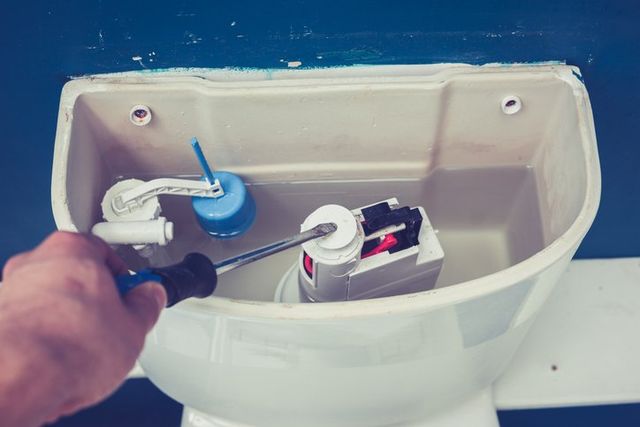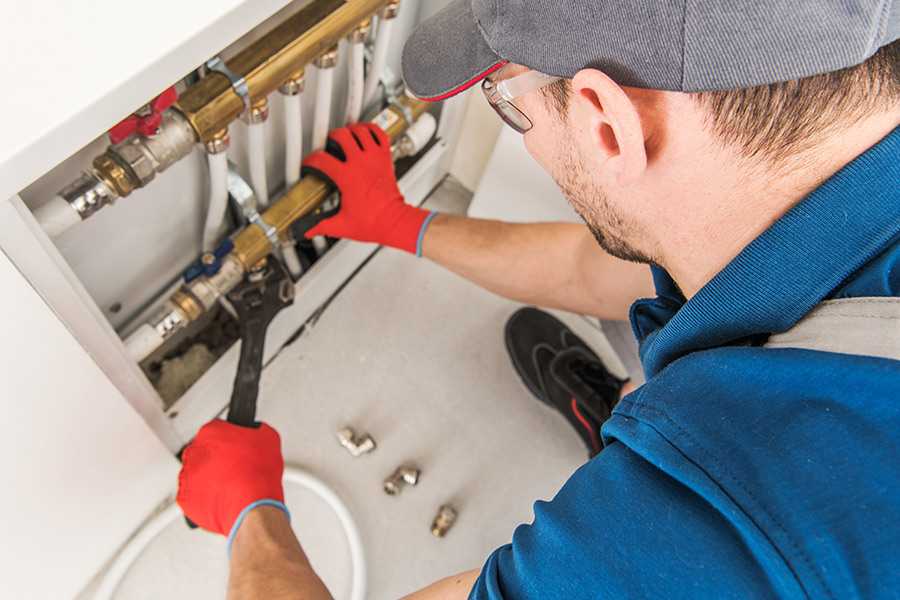What're your opinions about Warning Signs You Need Water Heater Repairs?

A water heater is just one of one of the most crucial basic appliances that can be located in a house. With water heaters, you do not require to go through the tension of heating water manually each time there is a requirement to take a bath, wash, or the recipes. Nonetheless, there is always a possibility that your water heater would certainly break down similar to a lot of mechanical devices.
It is important to note any kind of little breakdown and tackle it swiftly prior to things leave hand. The majority of times, your hot water heater begins to malfunction when there is a build-up of debris as a result of continual use. As a precaution, routine flushing of your water heater is advised to avoid debris accumulation as well as prevent functional failure.
Common hot water heater emergency situations and how to manage them
Leaking water heater storage tank.
A leaky storage tank could be a sign of deterioration. It could create damage to the flooring, wall and also electrical devices around it. You can even be at threat of having your apartment or condo swamped. In this situation, you must turn off your water heater, enable it to cool, and also carefully search for the source of the problem. At times, all you need to do is to tighten up a couple of screws or pipeline links in cases of minor leaks. But if this does not function as well as the leak persists, you could need to use the solutions of a professional for an ideal replacement.
Rising and fall water temperature level.
Your water heating unit could begin producing water of various temperatures normally ice scalding or chilly hot. There might be a requirement to change either the home heating or the thermostat system of your water heating unit.
Insufficient warm water
Managing an insufficient supply of hot water can be aggravating. It may be that the hot water heater can not sustain the warm water need for your apartment. To manage this trouble, you might try to readjust your heating unit's temperature level dial as well as wait on a few mins. If the problem persists, you can request for the aid of a specialist plumber. You can update your water heating unit to one with a bigger capability.
Tarnished or odiferous water
You require to recognize if the problem is from the container or the water resource when this takes place. If there is no amusing smell when you run cold water, then you are specific that it is your water heater that is malfunctioning. The odiferous water can be brought on by corrosion or the accumulation of microorganisms or debris in the hot water heater container. You can try flushing out your storage tank or changing the anode if the trouble continues once you observe this. The feature of the anode is to clear out germs from your storage tank. Since the anode pole substitute calls for a comprehensive knowledge of your water heating system, you will require the help of a specialist.
Verdict
Some property owners overlook little warning as well as minor faults in their hot water heater unit. This only brings about further damage as well as a feasible full breakdown of your appliance. You ought to take care of your water heater faults as quickly as they come up to prevent even more expenditures and also unnecessary emergency troubles.
With water heating units, you do not require to go via the anxiety of home heating water by hand every time there is a demand to take a bathroom, do the washing, or the dishes. Your water heating unit can begin creating water of various temperatures usually ice hot or chilly warm. It may be that the water heating system can not support the hot water demand for your apartment. If there is no funny odor when you run chilly water, after that you are particular that it is your water heating unit that is faulty. The smelly water can be created by corrosion or the buildup of microorganisms or sediments in the water heating unit tank.
What’s Wrong With My Water Heater?
Not Enough Hot Water
You probably encounter this problem in the shower or while washing dishes. As you run your water, you’ll notice it starting to cool down. Turning up the hot faucet may not work, or it may only heat the water for a short period. Your hot water probably comes back and works normally one or two hours after you use it up.
If you’ve never had enough hot water, your heater may be too small for your home. If you haven’t had a problem until recently, there’s probably something’s wrong with your heater’s thermostat. Try adjusting it to see if you can feel a difference. Even if the thermostat’s working, the heating element itself could have burnt out. It’s also possible that a clog has restricted water flow into or out of the heater. Luckily, none of these problems are hard to fix, as long as you call them in early.
Water is Too Hot
Unregulated water heaters can make water dangerously hot. You probably have this problem if you’ve been scalded by your hot water. It’s also a likely culprit if you have trouble getting your faucets to produce a comfortable temperature. This problem is easy to fix, but it can also be a serious health hazard if you don’t address it. If you think your water is too hot, don’t doubt yourself; look into it!
Start by finding your heater’s thermostat and mark its position with a pen. Turn the thermostat to a cooler setting. Wait a couple hours to see if the problem is solved. If it isn’t, listen for boiling in the tank and look for water that comes out of the faucet steaming. In those cases, your temperature-pressure relief valve may be malfunctioning. This is a serious problem that can be dangerous, so you should have it looked at right away.
Discolored or Smelly Water
If all your water looks rusty or smells weird, there’s probably a problem with your pipes. If only your hot water looks weird, however, your water heater is probably at fault. Hot water discoloration comes in several varieties. It could look orange or brown-ish, taste rusty, or feel grainy. It could also look yellow or green-ish and taste gross or feel slimy. Either way, it’s a sign that there’s something wrong with your water heater’s tank.
Usually, hot water discoloration means sediment has built up in your tank. Sediment is made up of hardened minerals that accumulate on the inside of the water heater’s walls. When enough sediment builds up, it causes all kinds of problems–including your discolored water. Try flushing your water heater tank to clean out built up sediment. If the water still tastes rusty, your tank’s rust-preventing anode rod may have worn out. A pro can replace an anode rod easily, but without one, your tank could rust beyond repair relatively quickly.
Leaking
Water heaters can leak from several different places, and each leak means something different. If the leak is coming from a pipe above the heater, it’s possible the tank itself hasn’t been compromised. The cold inlet, hot outlet, and T&P pipes could all leak from above. Try tightening the problematic valve. If that doesn’t work, then the valve or pipe will have to be replaced.
If the leak is coming from the bottom of the tank, it’s important to determine exactly where it is. The leak could be coming out of the drain valve or your T&P valve below the tank. You can replace those valves and preserve the tank itself. If you notice the water tank itself leaking, however, that probably means it’s corroded beyond the point-of-no-return. Leaking water heaters are a big deal, so you should get yours replaced ASAP.
https://www.punctualplumberdallas.com/blog/whats-wrong-water-heater/

I'm certainly very interested in Is Your Water Heater Leaking? and I really hope you enjoyed reading the entire post. So long as you appreciated our blog posting please do not forget to share it. Thanks a bunch for your time. Please pay a visit to our blog back soon.
We're your solution!
Comments on “Ways to Address the Most Common Heater Urgent Issues”